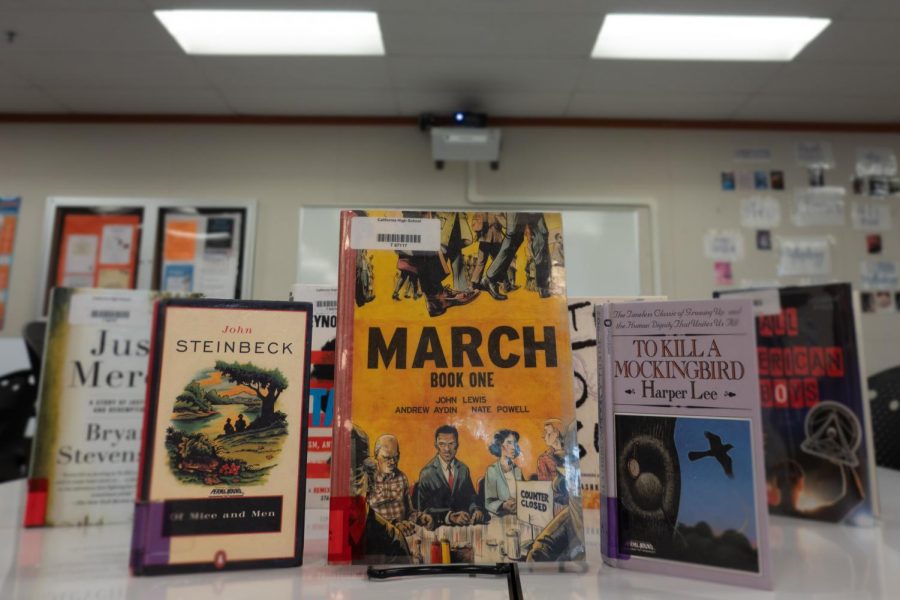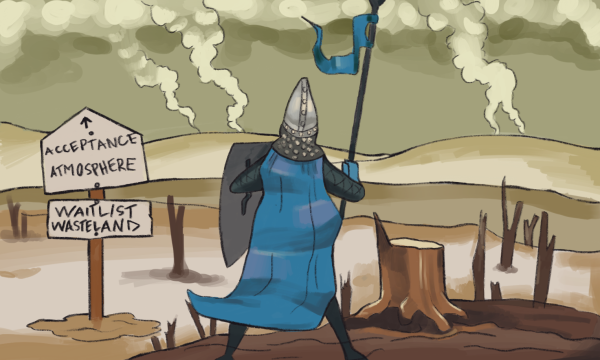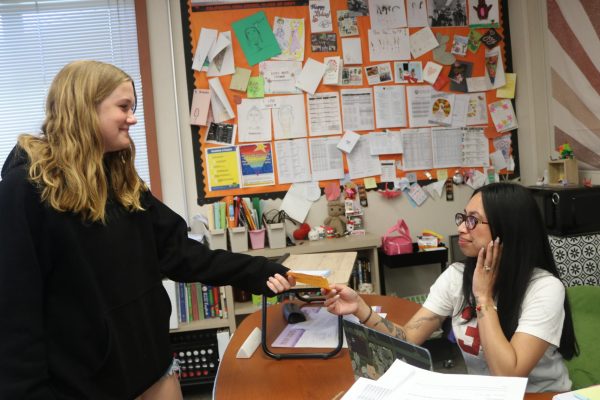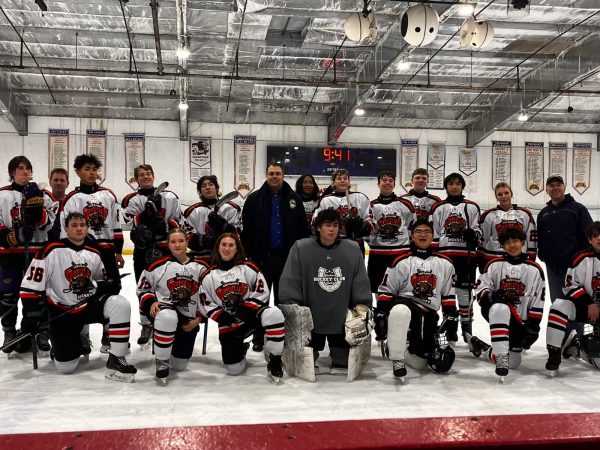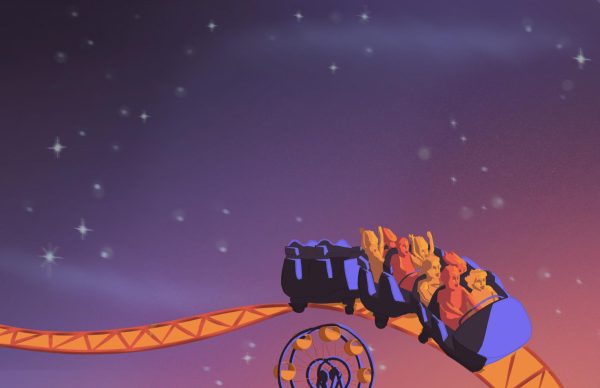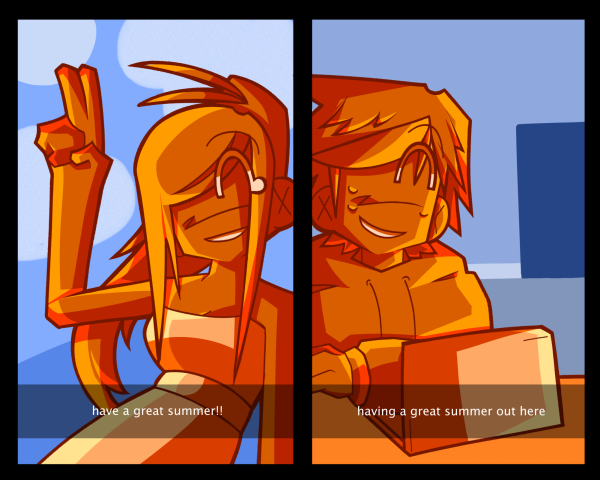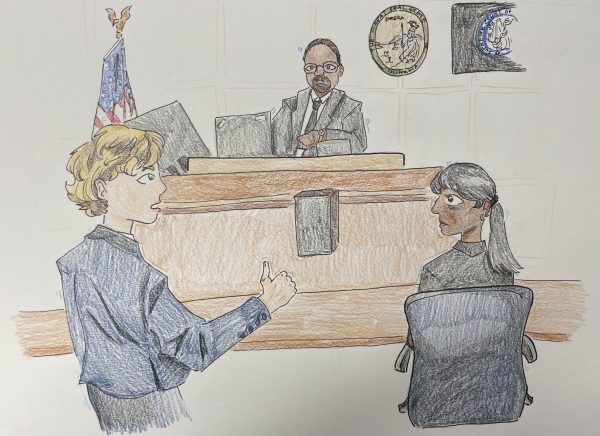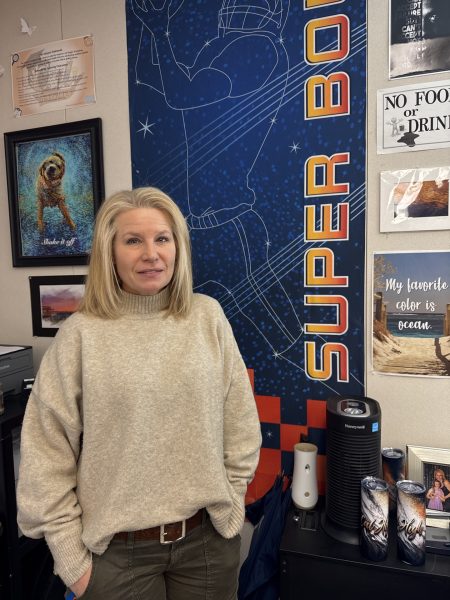Students call for better representation in English curriculum
Increased awareness to racial injustice spotlights derogatory terms in required books
The classic novels “Of Mice and Men” and “To Kill a Mockingbird” – displayed here in Cal High’s library – have the attention of some students, who are pushing for the district to remove them from the freshmen required reading list because they include offensive racial slurs such as the N-word and are deemed by some to be too discriminating.
Black Lives Matter is a movement that many people have heard of, but not many are aware of the effect this could have on the English curriculum.
Students from the district’s four high schools are pushing the San Ramon Valley Unified School District to ban books such as “Of Mice and Men” and “To Kill a Mockingbird,” because they include offensive racial slurs such as the N-word and are deemed by some to be too discriminating to be required reading books for freshmen.
These works may be offensive to some marginalized communities because of historical implications, going back to our country’s dark past of discrimination and slavery.
The Instagram account Diversify Our Narrative, a national movement designed to expand schools’ English curriculums to include a wider range of perspectives, has amassed over 146,000 followers. Diversify Our Narrative is collecting signatures on a petition that calls for the inclusion of more books with varying viewpoints to make sure that all students feel accurately represented.
The movement has collected a total of 333 signatures from students in the district as of Nov. 6.
“Our goal is to work towards education,” said Dougherty Valley senior Sriya Mikkilineni, who is Diversify Our Narrative’s district lead. “We want it to be taught right.”
Mikkilineni and fellow Dougherty Valley student Malvika Kumar are the main leaders of the Diversify Our Narrative movement in the school district, and are working to address problems of inequality.
Cal High students have joined those at Dougherty, Monte Vista and San Ramon Valley high schools to sign the petition with the belief that books with such fixed viewpoints should not be the only texts students are exposed to.
More specifically, the San Ramon student leaders of Diversify Our Narrative started a different petition to introduce two books by more diverse authors into each grade level. Although the petition was discontinued because the district claimed to have changes already in place, the movement gained over 350 signatures from students in the district.
During their time as leaders of the movement, Mikkilineni and Kumar have encountered numerous challenges in trying to reach inclusivity. One of these main problems has been making people care, especially those not directly affected.
“It’s hard for some students to feel empathy,” Mikkilineni said.
She described how hard it is to make people want to do something about misrepresentation when they haven’t been able to comprehend how it feels.
“We are lucky we are in a good district,” Kumar said.
District leaders are aware that there are some issues with diversity in the high school English curriculum and problems with equity on campuses.
After an incident at Cal last year where a student fashioned his ghost costume for Halloween to look like a KKK member, district administrators have been calling for an equity audit to inspect diversity and inclusion in schools. The district hired an equity coordinator with years of experience in helping districts attain equality.
Steps like this and having students involved in Diversity Our Narrative seem to be moving the district towards greater inclusivity.
“At its core, this movement is trying to provide racial justice,” said Cal High senior Amina Syed, the school’s ASB Equity Leader and Climate Committee Chair.
Although not part of Diversify Our Narrative, Syed said the movement is all about trying to reach equality for students that are being unrepresented or oppressed. She thinks books such as “Of Mice and Men” and “To Kill a Mockingbird” are not being taught as well as they should be.
“It’s important to respect the needs and demands of the Black community,” Syed said.
She believes that non-black students don’t have the perspective needed to comment on the issue, and that it always should come down to what will make the situation better for those underrepresented students.
Syed supports the message of Diversify Our Narrative and believes in its cause. She also believes that the movement is doing good by bringing some attention to the issue.
Many teachers agree with the message of equality, but some don’t want to go so far as to start banning books.
“A student shouldn’t be banned from reading a book,” English teacher Donna Montague said.
Montague believes that people should not be forced to read books if they find them offensive or simply don’t want to. But in the same vein, Montague thinks that a person should not be restricted from reading a book if they want to.
The focus of Cal English teachers is not about censoring information that exists in books, but about getting more representation in the books people are reading.
Montague believes the curriculum has too many white writers that are providing a fixed viewpoint on the events of the past. This may provide students with less representation in their books. This could have a ripple effect, making students who aren’t represented more dejected or upset.
In regards to the upsetting language and imagery in some of the existing books, Montague said that this mainly relies on the way that each individual teacher handles the subject. But she also believes that these books are too helpful on a person-to-person basis to just ban.
But some students want more immediate fixes to these problems because they see them becoming larger issues in the future.
“I feel like [the books] are outdated, and as a society, we should be moving forward,” freshman Sachit Ganotra said.
Ganotra also believes that racial slurs such as the N-word in the books “Of Mice and Men” and “To Kill a Mockingbird” are big problems that should be addressed in the moment. In his opinion, if these derogatory terms were left unaddressed, it may send a message to students that it is okay to use them.
Despite his concerns with these books, Ganotra still thinks that they are important to learn.
“I also see what the author intended by including details such as this in their book,” he said.
Even so, Ganotra is convinced that banning, or at least not requiring these books is a crucial first step.
Sophomore Ronit Prakash believes the background these books provide allow people to gain the knowledge they may need to be more conscious about matters like race and inequality.
“Racism comes from ignorance,” Prakash said. “The books are not that big of a problem if they are taught well.”
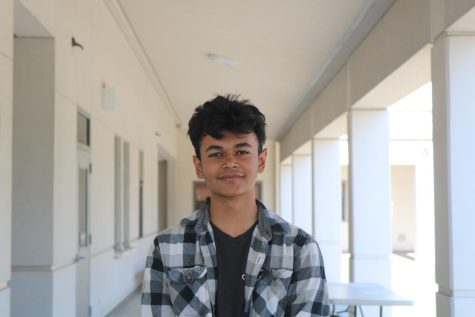
Senior Rohan Iyer is a staff writer for the California High school newspaper. This is the second time he has taken part in The Californian paper as a writer,...

